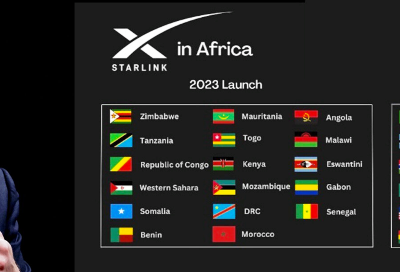 One of the key objectives of the World Summit on Information Society (WSIS I, Geneva 2005) and (WSIS, Tunis, 2007) was the encouragement of knowledge creation within the entire spectrum of ICT. The UN sponsored Summits recognized that ICT has become a major enabler for backward economies to leapfrog into the emerging New Economy or more appropriately, the New Information Order.
One of the key objectives of the World Summit on Information Society (WSIS I, Geneva 2005) and (WSIS, Tunis, 2007) was the encouragement of knowledge creation within the entire spectrum of ICT. The UN sponsored Summits recognized that ICT has become a major enabler for backward economies to leapfrog into the emerging New Economy or more appropriately, the New Information Order.
For nations to actively participate in the New Order there must be a high degree of local content in knowledge formation; a deliberate policy thrust to foster the growth of high-skill pool that can generate local content and ensure the harnessing of such knowledge contents for the advancement of the global ICT space.
Unfortunately, this gospel is not for Nigeria. Harassed by a failed political leadership, narrow-minded and disillusioned elite, we ceaselessly failed to see the missing gaps between commendable institutional or individual research efforts at the bottom and the inherent failure of leadership at the top to harness the great potential at the bottom for the advancement of the Nigerian state.
There has never been a focused plan to create a digital force that could drive real growth in every facet of the economy. We create research institutions and public agencies charged with implementing specific policy-thrust and then starve them of funds to actualize their original objectives. There is absolutely no connection between the universities, other research institutions and corporate Nigeria. Government appears not to know why it created the institutions of learning and research or what it should do with its research agencies.
]]>
There is an abysmal lack of understanding within government and the political elites on what they can do with the Nigerian state outside of oil and the politics of ethno-religiosity to sustain their grip on ‘oily’ money. Millions of youths that could constitute a code army are made to become oil militants and Boko Haram soldiers.
Agencies such as the National Office for Technology Acquisition and Promotion (NOTAP) and the National Information Technology Development Agency (NITDA) that ought to be at the fore-front of fostering the growth of local ICT content and connecting such contents to the needs of the industry have become emasculated. They have been made no better than civil service institutions where workers idle around all days waiting for month-end salaries.
As the usual illustration of India and China has often shown, ICT could pave the way for multi-dimensional growth of backward economies in such a way as to enlist them in the New Economy and put them ahead of established members of the old economy. China is today ahead of many western European countries who constituted active participants in the fading First World Order. And so is India particularly in the field of software applications.
Those Asian countries created clear-cut agenda on integrating ICT to the advancement of their economies. They impacted into their policies, the willpower and financial capacity to develop local competence in the provision of soft and hard knowledge. They closed the gaps between research institutions and the industrial sector; and they actively pursue the vision of becoming producers of ICT in the belief that mere consumers of ICT can only come to fatal destiny.
Unfortunately, that is our fate. We have not left the unimpressive part of the digital divide that tags us as mere consumers of ICT contents. In global ICT space, we are not producers but consumers of content. Our entire achievements in the last 10 years and somewhat ‘over-praised’ ICT sector continue the vicious circle that defines us a consumer nation. Since 1960, we have remained incapable of producing content. We have consistently affirmed our inability to foster the growth of a local skill-pool that could create ICT products.
The new knowledge houses in India, China, Brazil, South Korea, Singapore and Chile among others are testimonies to the increasing ability of nations to gain rapid growth notches by investing in local ICT content. All these countries have invested heavily in local software development and are recognized as global key players in ICT.
Low content development has kept us down at the backyard of global economy. The dream of Nigeria becoming among the top 20 highest economy in the world by the year 2020 has remains mercifully, a mere dream. In 10 years, we have fed the ICT sector of other nations with our unwholesome consumer behaviuor. We have failed to recognize that local software development and indeed, all of local ICT contents constitute the critical key to national economic development. We remain heavy importers of software applications and hardware devices while those exporting countries fulfill their vision of meeting their local demand for ICT usage and development.
We must re-think our policy thrust. We must find the link between capacity building agencies, research institutions and the body of entrepreneurial entities that make up corporate Nigeria. Government has to assert the willpower to drive local content. It must impose heavy penalty on imported content and reward usage of local content. Government must recognize the imperative of creating a generation of code or digital army.
The Yar Adua/Goodluck team ought to become a major shift in how government thinks and what it believes in as the defining areas for our participation in the New Economy. Two intellectuals ought to prove the difference between straight jacket, armor tank leadership and consensus, cerebral leadership. But somehow, the realities are not adding up. Or are they?.




























